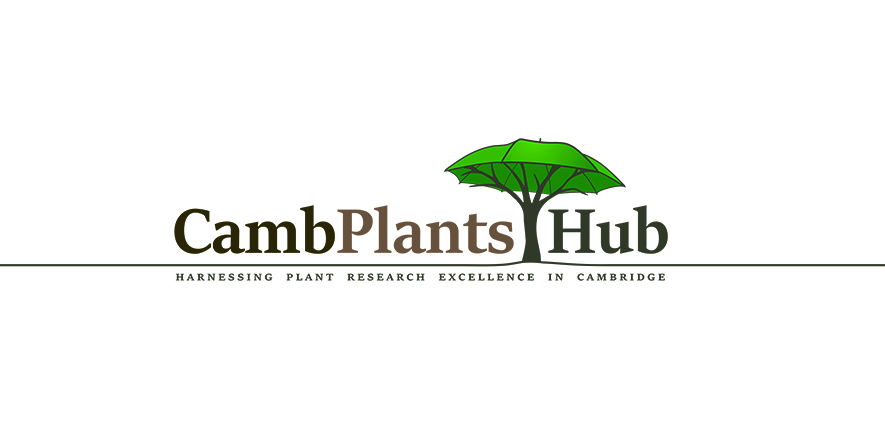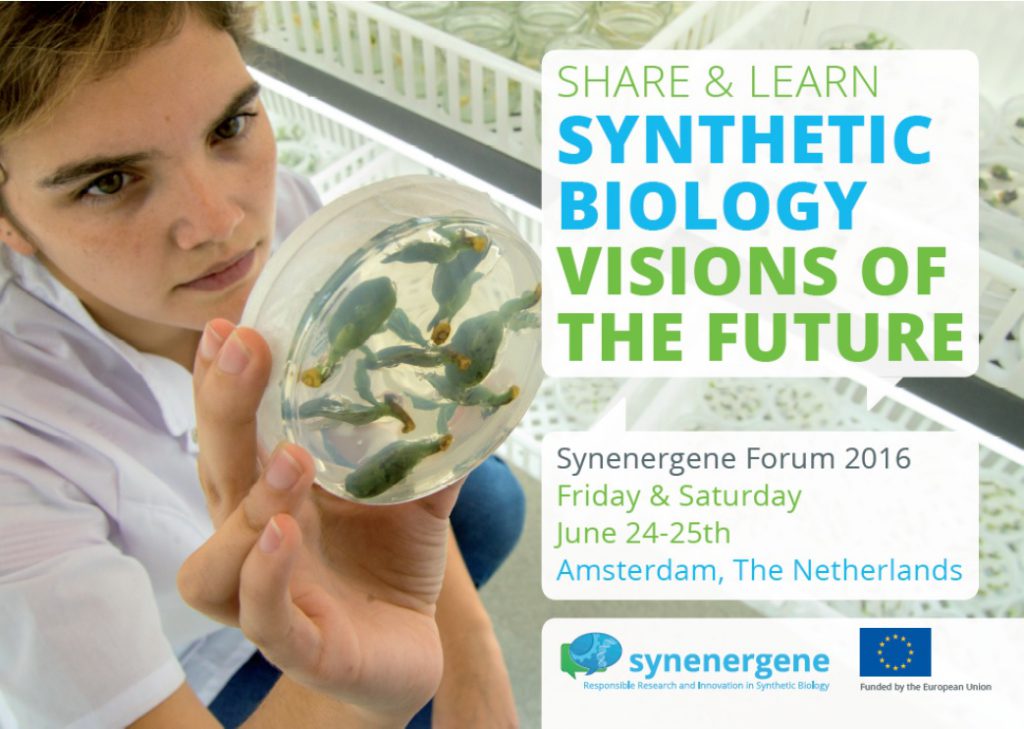Global Challenges Research Fund: £600,000 Foundation Awards available
The first three calls for proposals to the Global Challenges Research Fund are now open. The Fund, involving BBSRC, MRC, AHRC, ESRC and NERC, was created to ensure that UK research takes a leading role in addressing the problems faced by developing countries. Foundation Awards of up to £600,000 are available for multidisciplinary research in three areas:
- Global Agriculture & Food Systems Research
- Global Infections
- Non-communicable Diseases
Deadline for outline applications: 4pm, 22 June 2016 Awards would start on 1 April 2017, for applications for proposals of ~24 months’ duration.
All research funded through these awards will be part of the UK’s Official Development Assistance (ODA). Applications must be primarily relevant to near-term or long-term benefits to the health or prosperity of Low or Middle Income Countries.
Note for Cambridge researchers:Cambridge Global Food Security and CambPlants coordinate a large network and can help you find the collaborators you need across the University for a multi-disciplinary proposal that meets the funding criteria. In anticipation of further funding calls in this area with a short turnaround (GCRF, Newton Fund, etc),the Global Food Security SRI are planning a series of Sandpit events on themes within Global Food Security to support Cambridge academics in generating and developing new ideas, finding collaborators (both within Cambridge and from external organisations), and submitting bids. Please let Jacqueline Garget – Coordinator of the Cambridge Global Food Security SRI - know if you would like to be involved in the events or if any research ideas you’re thinking of submitting that fall within the remit of the Initiative (www.globalfood.cam.ac.uk).
Plant Synthetic Biology at GARNet2016: Innovation in the Plant Sciences
Plant Synthetic Biology is the topic of a dedicated session at the GARNet2016 meeting this September, in addition to a workshop on CRISPR-Cas. If you missed out on the GARNet/OpenPlant CRISPR workshop last year, this is a great chance to get familiar with this increasingly important technique.
From the GARNet website:
GARNet2016: Innovation in the Plant Sciences. September 6th-7th 2016, Cardiff.
Registration is now open for the exciting GARNet2016 meeting. We have put together a set of talks on a broad range of subjects that are all linked by their use of novel experimental techniques.
Session 1: Frontiers in Plant Imaging
Session 2: Enabling the Translational Pipeline
Session 3: Plant Synthetic Biology
Session 4: Genomics tools for Gene Discovery
Session 5: Cell Signaling
In addition we will have three workshops that aim to support new technologies that are available to plant scientists:
* Pre-Meeting Workshop: Finding your Arabidopsis Gene in Wheat.
Organiser: Philippa Borrill and Cristobal Uauy
* Workshop 1: Usage and Application development within Araport.
Organiser: Agnes Chan and Chris Town
* Workshop 2: Introduction to CRISPR-Cas, troubleshooting target design and verification of mutants. Organiser: Vladimir Nekrasov and Amanda Hopes
We encourage young researchers to participate in our extended poster session and to apply to give a 2 minute flash presentation.
All information about registration, conference accomodation and the scientific programme can be found at: http://garnet2016.weebly.com/
GARNet will have at least £500 available to support travel of UK-based PhD students to the meeting. This money will be distributed on a first come, first-serve basis. Please contact Geraint Parry (geraint@garnetcommunity.org.uk) about the availability of these travel scholarships.
Please pass this information about GARNet2016 onto anyone who you think will be interested in this conference. If you have any questions please contact Geraint Parry geraint@garnetcommunity.org.uk
Syngenta offers iGEM Sponsorship for manufacturing Resilient RNA-based biocontrols
 Syngenta are offering iGEM teams sponsorship funding to explore areas of innovation surrounding RNA-based Biocontrols. After the introduction of a Special Plant Prize into iGEM and adoption of the 'PhytoBricks' plant common syntax, championed by OpenPlant labs, several plant-focused iGEM teams are participating in this year's competition and may be interested in the opportunity.
From Syngenta:
"The challenge with RNA-based biocontrols is finding the balance between scaling up the use of this highly effective agricultural tool while also being able to clearly demonstrate the value to multiple stakeholders. Syngenta and other developers of this tool must show clear demonstration of value creation through both the technological development (what this tool is developed to support) and communication development (how the tool is effectively explained and rolled out).
Syngenta are offering iGEM teams sponsorship funding to explore areas of innovation surrounding RNA-based Biocontrols. After the introduction of a Special Plant Prize into iGEM and adoption of the 'PhytoBricks' plant common syntax, championed by OpenPlant labs, several plant-focused iGEM teams are participating in this year's competition and may be interested in the opportunity.
From Syngenta:
"The challenge with RNA-based biocontrols is finding the balance between scaling up the use of this highly effective agricultural tool while also being able to clearly demonstrate the value to multiple stakeholders. Syngenta and other developers of this tool must show clear demonstration of value creation through both the technological development (what this tool is developed to support) and communication development (how the tool is effectively explained and rolled out).
We are looking for iGEMers to explore technical practices that take into account the implementation of such a tool, which also involves thinking through human practices."
For more information and instructions on how to apply, see the iGEM website.
Genome Editing and the Future of Farming (attendance sponsorship available)
On the 6th September, leaders in the field of livestock genetics will gather at The Roslin Institute where they will discuss the future of farming and the implications of Genome Engineering. A series of talks and panel discussion sessions will examine the global scene and case studies from academia and industry, highlighting the opportunities and challenges in the field.
Who should attend?
Researchers in academia or industry and policy makers with interests in food security and the livestock sector, particularly in the genetic techniques to improve livestock and the regulatory issues surrounding these new technologies.
Sponsorship for Early Career Researchers
The Biotechnology & Biological Sciences Research Council (BBSRC) is supporting this event with the offer of attendance sponsorship for UK university-based early careers researchers who register for this meeting and are working currently on BBSRC-funded research. BBSRC will consider sponsoring up to 10 individuals within this category, which is defined as BBSRC-funded post-doctoral research staff with five years or less of total active research employment.
- Sponsorship will be offered in the form of reimbursement of travel and subsistence costs after meeting attendance
- Researchers who may be eligible for BBSRC sponsorship should register via the process defined for all meeting attendees. Once registered, please request a sponsorship application form from Emilie Brady (emilie.brady@ed.ac.uk); the deadline for submission of completed applications is 5pm Wednesday 6th July 2016.
- Awardees will be selected by BBSRC Office, taking into account the need for scientific range and researcher / institutional diversity. Registrants for this meeting should therefore be prepared to meet their own attendance costs if unsuccessful. Sponsorship applicants will be informed of the outcome by Friday 22nd July 2016
Source: Genome Editing and the Future of Farming – The National Institutes of Bioscience
Synthetic Biology UK 2016
14—16 November 2016: Dynamic Earth, Edinburgh, UK
Synthetic Biology is a field that has rapidly expanded. It relies on multidisciplinary approaches and delivers transdisciplinary advances that have the potential to redefine our understanding of the natural world and to significantly contribute to our society and economy.
The UK is a world leader in science and engineering, and Synthetic Biology has been identified as an important area for our continued success. Key to that success is a cohesive, vibrant and multidisciplinary community, open to collaboration, open to advances and driven to exceptional research with meaningful outcomes.
That cannot be delivered by a single research centre, single funding body or hosted by a single learned society. The SynBio UK conference aims to showcase UK Synthetic Biology research and to create a focal point for the community, embracing its diversity and fostering its growth and its engagement with society.
Topics covered in this meeting will be published in Biochemical Society Transactions
Abstract deadline: 12 September 2016 Abstract submission is now available
Earlybird registration deadline: 12 September 2016
Oral communication slots are available at this meeting. All attendees, particularly researchers in the early stages of their career, are invited to submit a poster abstract for consideration as an oral communication.
Student Bursaries are available for this meeting. Not a member of the Biochemical Society? Join today and save up to £100 on your registration fee.
For more information, including the full program, please see here.
SYNENERGENE Forum 24-25th June 2016 Amsterdam
Synthetic Biology – visions of the future
SYNENERGENE Forum 24-25th June 2016 Amsterdam
The SYNENERGENE Forum is a large public event which will discuss the promises and implications of synthetic biology from a societal perspective.
Synthetic biology From the beginning of this century synthetic biology has emerged as a new engineering science of life. It uses the rapidly increasing possibilities for both “reading” and “writing” DNA to design and synthesize living cells and biological systems with functions that do not exist in nature. Synthetic biology offers new options for innovation in the fields of health care and sustainable production of energy and materials, but may also more and more become a subject of public controversy about potential risks and commercial exploitation of natural resources.
Responsible research and innovation In order to deal with the governance challenges resulting from this tension, we need to establish conditions for responsible research and innovation (RRI) in the field. As a European mobilization and mutual learning action plan, involving nearly thirty parties from all over Europe, SYNENERGENE contributes to this aim. During the two-day Forum event we want to share our RRI experiences and achievements with relevant stakeholders and publics, including scientists, civil society organizations, industry and policy makers, and discuss the development of a synthetic biology agenda for the (near) future. Addressing the synthetic biology agenda implies a focus on: • Opportunities of synthetic biology relating to societal challenges • Concerns about synthetic biology relating to possible negative implications • Engagement with synthetic biology as a contribution to responsible research and innovation
Program The SYNENERGENE Forum offers a two-day program on Friday and Saturday 24-25th June in the Amsterdam Science Centre NEMO (http://www.e-nemo.nl/en/). The first day is a conference with plenary and parallel sessions focusing on core issues and activities addressed by SYNENERGENE. During the second day SYNENERGENE partners will put “synthetic biology on stage” through debates, theatrical performances and a BIO·FICTION film festival.
For full program and to register, please see here: https://www.rathenau.nl/en/agenda/synenergene-forum-2016
Agri-Tech Career Workshops inc. Synthetic Biology Theme
 Do you want to raise your profile? Experience presenting to a multidisciplinary audience? Find ideas and inspiration? Find out how it really looks like to work in industry?
Do you want to raise your profile? Experience presenting to a multidisciplinary audience? Find ideas and inspiration? Find out how it really looks like to work in industry?
CambPlants is organising THE event to go to if you are thinking of what’s the next step in your career.
WHAT: This two part workshop series starts with a half day skills and training workshop (11th May) followed by a showcase event highlighting career options and a lot of networking opportunities with Industry representatives (5th July)
Part 1 - Career Workshop: paving the way to your career If you want to let industry know about what you doing by presenting at FarmRound, an agri-tech career afternoon, you need to participate in this workshop! A bespoke workshop focusing on ‘business-like’ presentation skills preparing you for the flash presentation to be given at FarmRound: an agri-tech career afternoon. Researchers will be given coaching. If you want to present in Part 2, this workshop is compulsory. An ‘industrial prize’ is at stake…. Register here
Part 2 – FarmRound: an agri-tech career afternoon A half day event including a keynote speaker, talks from industrialists about their careers, flash presentations from PhDs and Postdocs and lots of time for discussions. There will be an ‘Industry fair’ Drinks Reception where early career researchers can interact closely with industrialists by visiting a wide range of industry stands. The best flash presentation presented by early career researchers will win a super exciting mystery prize. programme available soon. This day will be a unique opportunity for researchers to meet with industry representatives and to understand what it is like to work in the industry sector by being aware of different career paths. Register here
FOR WHOM: Early career scientists (PhDs & Postdocs) working in plants, synthetic biology, big data, agricultural, environmental, food and other relevant sciences contributing to our food supply.
Limited places available – Register your interest NOW
Exciting collaboration opportunity to test Oxford NanoPore device for soil/plant-related sequencing
Details from Simon Hazelwood-Smith at Science Practice "We are Science Practice, a design and research company focused on applying the principles of design to science. One of our interests is in ways of increasing access to scientific testing in agriculture, and we are currently developing a paper microfluidic device for testing soil nutrients like nitrates, at Imperial College London.
We also have a MinION (a pocket-sized genetic sequencing machine) from Oxford Nanopore and we would like to try using our last two MinION flow cells for agricultural testing. We are looking for a collaborator with lab access who would be interested in trying this out to see if we get any interesting results.
Currently our plan is to test nitrates in two different soil samples with our microfluidic device, and also to use MinION sequencing to identify organisms (bacteria, fungi etc.) found in these two soil samples. The aim is to see if it is possible in principle to detect a relationship between nitrate levels and nitrogen-fixing bacteria. This little project would be about two days of lab time (1 day to sequence each soil sample). However we are open to suggestions for other agriculture (e.g. plant) related sequencing projects from anyone who is interested in exploring this exciting new piece of technology with us."
If interested, please contact Jenny Molloy (jcm80@cam.ac.uk) for more information.
Cambridge-Africa ALBORADA Research Fund: 2016 Call
More info on Cambridge-Africa website >>>
The Cambridge-Africa ALBORADA Research Fund was established in 2012, with generous support from The ALBORADA Trust. The fund supports pairs of researchers (post-doctoral level and above) from the University of Cambridge (or an affiliated institution such as the Wellcome Trust Sanger Institute and NIAB) and sub-Saharan African institutions, across all disciplines, to initiate and/or strengthen research collaborations. This is achieved by providing funding ofbetween £1,000 and £20,000, for:
- research costs (such as reagents, fieldwork and equipment)
- research-related travel between Cambridge and Africa
- conducting research training activities in Africa (e.g. setting up courses/workshops).
Please read carefully the Terms & Conditions, including eligibility criteria, before applying.
How to apply
The online application form has been designed to allow both applicants (Cambridge- and Africa-based) to log in, update, save and eventually submit electronically.
To access the form, the Cambridge based applicant mustRegister Here. Only applicants with@cam.ac.uk, @sanger.ac.uk and @niab.ac.uk email addresses can register.
The Cambridge-based applicant must then log in to the ALBORADA application form, where they will see the words "Invite a 2nd applicant to view/edit this submission". Click on this link in order to invite the Africa-based applicant to register and edit the forms.
If you are eligible to apply, but are unable to register on the page above, then please contact Sophia Mahroo on szm21@cam.ac.uk.
If you have already registered, please Log Into access the form.
The deadline to submit an application for collaborative research funding is Sunday 5th June 2016.
Gene Discovery for Synthetic Biology: Exploring the Novel Natural Product Biosynthetic Capacity of Eukaryotic Microalgae
OpenPlant PI Professor Rob Field at the John Innes Centre has published work of relevance to those working on algae and microalgae.
O’Neill, G. Saalbach, R.A. Field (2016). Gene Discovery for Synthetic Biology: Exploring the Novel Natural Product Biosynthetic Capacity of Eukaryotic Microalgae. Methods in Enzymology 576, p 99-120.
Abstract
Eukaryotic microalgae are an incredibly diverse group of organisms whose sole unifying feature is their ability to photosynthesize. They are known for producing a range of potent toxins, which can build up during harmful algal blooms causing damage to ecosystems and fisheries. Genome sequencing is lagging behind in these organisms because of their genetic complexity, but transcriptome sequencing is beginning to make up for this deficit. As more sequence data becomes available, it is apparent that eukaryotic microalgae possess a range of complex natural product biosynthesis capabilities. Some of the genes concerned are responsible for the biosynthesis of known toxins, but there are many more for which we do not know the products. Bioinformatic and analytical techniques have been developed for natural product discovery in bacteria and these approaches can be used to extract information about the products synthesized by algae. Recent analyses suggest that eukaryotic microalgae produce many complex natural products that remain to be discovered.
Image credit: microscopic-view-of-microalgae by Learn 2 Teach, Teach 2 Learn on Flick, licensed under CC-BY-NC 2.0
ERA-CAPS Third call pre-announced: “Europe-USA Call strengthening transnational research in the Molecular Plant Sciences”
 The ERA-CAPS network is pleased to pre-announce the launch of its third Transnational Call for Proposals for Collaborative Research Projects on June 23rd, 2016. The Call is entitled: The ERA-CAPS network is pleased to pre-announce the launch of its third Transnational Call for Proposals for Collaborative Research Projects on June 23rd, 2016. The Call is entitled: “Europe-USA Call strengthening transnational research in the Molecular Plant Sciences” and the Call Notice will be published at www.eracaps.org and respective sources of information. The purpose of this pre-announcement is to enable interested parties to build their consortia and start preparing their proposals. The call for pre-proposals will close on the 28th of September 2016, 12.00 CET.
The ERA-CAPS network is pleased to pre-announce the launch of its third Transnational Call for Proposals for Collaborative Research Projects on June 23rd, 2016. The Call is entitled: The ERA-CAPS network is pleased to pre-announce the launch of its third Transnational Call for Proposals for Collaborative Research Projects on June 23rd, 2016. The Call is entitled: “Europe-USA Call strengthening transnational research in the Molecular Plant Sciences” and the Call Notice will be published at www.eracaps.org and respective sources of information. The purpose of this pre-announcement is to enable interested parties to build their consortia and start preparing their proposals. The call for pre-proposals will close on the 28th of September 2016, 12.00 CET.
The objective of this call is to stimulate true collaboration between research teams of different countries in order to achieve the highest quality projects, to increase synergies between national programmes and to strengthen international research in molecular plant sciences. The funding partners agree that this unifying approach is a fundamental prerequisite to maximise the utility of the limited resources available and to meet the European and global demand for molecular plant science innovation with a long-term perspective.
To read more, visit the ERA-CAPS Third call page. and the Call Notice will be published at www.eracaps.org and respective sources of information. The purpose of this pre-announcement is to enable interested parties to build their consortia and start preparing their proposals. The call for pre-proposals will close on the 28th of September 2016, 12.00 CET.
UK Commons Select Committee calls for 'GM and gene editing' evidence check
The UK Commons Science and Technology Select Committee invites views on the strength of the evidence in relation to GM and gene editing.
Please read the Government statement before submitting a comment.
- GM and Gene Editing: Government statement ( PDF 90 KB)
Comments will be pre-moderated.
Science and Technology 'evidence check' web forum homepage
The Science and Technology Committee invites views on the Government-provided evidence-check papers posted on this forum, in particular on the strength of the evidence and how well the Government's approach reflects the evidence.
Taking forward the work of the Institute for Government, this exercise will help shape future Committee work, including identifying areas for scrutiny hearings or for launching inquiries. We would like submitters to address the following broad questions:
- Diagnosis: Does the Government show that it knows about the issue, its causes, effects, and scale?
- Actions/plans: Has the Government shown that any policy intervention is evidence-based, that it has assessed the strengths/weaknesses of the evidence base, and identified other policy options?
- Implementation: Has the Government shown that the implementation method for the policy has been based on evidence on what works?
- Value for money: Are the costs and benefits understood and evidence-based?
- Testing and evaluation: Are plans for testing and evaluation adequate?
8th International Workshop on Bio-Design Automation (IWBDA), Newcastle upon Tyne, UK, August 16-18, 2016
The Eighth International Workshop on Bio-Design Automation (IWBDA) at Newcastle upon Tyne in the UK will bring together researchers from the synthetic biology, systems biology, and design automation communities to discuss concepts, methodologies and software tools for the computational analysis and synthesis of biological systems.

IWBDA offers a forum for cross-disciplinary discussion, with the aim of seeding and fostering collaboration between the biological and the design automation research communities. This year’s IWBDA will be hosted by the Interdisciplinary Computing and Complex BioSystems (ICOS) research group, Newcastle University.
OpenPlant is assembling a delegation to attend this highly relevant meeting - if you would like to attend with others from the centre, please contact Jenny Molloy on jcm80@cam.ac.uk.
Find out more at the event website >>
Topics of interest include
- Design methodologies for synthetic biology.
- Standardization of biological components.
- Automated assembly techniques.
- Computer-aided modeling and abstraction techniques.
- Engineering methods inspired by biology.
- Domain specific languages for synthetic biology.
- Data exchange standards and models for synthetic biology.
This year’s IWBDA will host the BDAthlon programming contest, where teams are given a set of programming challenges and then work to solve these challenges. In addition, there will be a satellite workshop on the Synthetic Biology Open Language (SBOL).
Key Dates
- Abstract submission deadline: April 15, 2016
- Scholarship application due: April 30, 2016
- Abstract and scholarship notification: May 13, 2016
- BDAthlon team application due: May 20, 2016
- SBOL workshop: August 15, 2016
- BDAthlon Competition: August 16, 2016
- Main IWBDA workshop: August 17-18, 2016
Registration will be open soon.
Abstract submission
Abstracts for oral and poster presentations should be two pages long, following ACM SIG Proceedings format. Detailed instructions can be found at: http://www.iwbdaconf.org/
ACS Synthetic Biology IWBDA 2016 Special Issue
All attendees will also be invited to submit to ACS Synthetic Biology “IWBDA 2016” Special Issue. ACS Synthetic Biology has the highest editorial standards, offers rapid publication of your research findings and imposes NO author submission, page, color, or cover art charges. We are looking for high quality submissions, for peer-review, as either short Letters or full-length Articles. The submission deadline will be announced soon.
Organizing Committee
Please feel free to contact the organizers with questions at: iwbda-exec@lists.bio-design-automation.org
- Co-General Chair - Anil Wipat, Newcastle University
- Co-General Chair - Pietro Lio', University of Cambridge
- Finance Chair - Traci Haddock, iGem Foundation
- Co-Local Chair - Goksel Misirli, Newcastle University
- Co-Local Chair - Harold Fellermann, Newcastle University
- Publication Chair - Avi Robinson-Mosher, Harvard University
- Programme Committee Chair - Chris French, The University of Edinburgh
IWBDA is organized by the non-profit Bio-Design Automation Consortium (BDAC).
EUSynBioS Symposium 2016: Engineering Biology for a Better Future
This weekend, the first EUSynBioS Symposium, themed Engineering Biology for a Better Future, will follow SynBioBeta at Imperial College London.
The Symposium kicks off with a Visionary keynote address from none other than synthetic biology pioneer Tom Knight (Ginkgo Bioworks). A former professor at MIT and one of the very first synthetic biology entrepreneurs, Tom will give an insight into the early days of synthetic biology and talk about what the future holds. Then, a session of scientific presentations exclusively by early career synbio researchers; providing graduate students and early career post-docs a platform to present their research to peers and senior scientists.
Post-lunch, the symposium will break into smaller breakout sessions on various topics from biodiversity to design and public engagement. Led by excellent fellow members, these sessions are a great opportunity to hear other people's views on important issues in synbio today. Two inspiring speakers - Luke Alphey (Oxitec) and Emily LeProust (Twist BioSciences) - will then talk about their career paths to setting up world changing synbio companies. A must for all budding synbio entrepreneurs! Michele Garfinkel (former Policy Analyst at the J.Craig Venter Institute, and currently at EMBO) will talk next, on the world of policy making and how we can make a difference in how synbio is legislated in the future.
Finally, the symposium will close with an Open Discussion on a topic chosen by you: Gene Drives! Gene Drives have gotten a lot of press in the last few months and we have none other than the scientist who coined the term, Austin Burt (Imperial College London), joined by Michele Garfinkel and Luke Alphey, giving an introduction to what this fascinating technology holds for the future. This session is a forum to express views and get answers from experts about gene drives: How do they work? Will they change the world for the better? Is it ethical to do so? ...and many more questions, we’re sure!
[spacer height="20px"] EUSynBioS Symposium 2016: Engineering Biology for a Better Future
Sat, Apr 9, 2016 - 8:00amSun, Apr 10, 2016 - 7:00pm
Imperial College London, South Kensington Campus, London, SW7 2AZ
Get help to improve your research software - deadline April 29th
If you write code as part of your research, then you can get help to improve it - free of charge - through the Software Sustainability Institute's Open Call for Projects. The call closes on April 29 2016.
You can ask for our help to improve your research software, your development practices, or your community of users and contributors (or all three!). You may want to improve the sustainability or reproducibility of your software, and need an assessment to see what to do next. Perhaps you need guidance or development effort to help improve specific aspects or make better use of infrastructure.
We accept submissions from any discipline, in relation to research software at any level of maturity, and are particularly keen to attract applications from BBSRC and ESRC funding areas.
The Software Sustainability Institute is a national facility funded by the EPSRC. Since 2010, the Institute's Research Software Group[1] has assisted over 50 projects across all the UK Research Councils. In an ongoing survey, 93% of our previous collaborators indicated they were "very satisfied" with the results of the work. To see how we've helped others, you can check out our portfolio of past and current projects[2].
A typical Open Call project runs between one and six months, during which time we work with successful applicants to create and implement a tailored work plan. You can submit an application to the Open Call at any time, which only takes a few minutes, at http://bit.ly/ssi-open-call-projects.
We’re also interested in partnering on proposals. If you would like to know more about the Open Call, or explore options for partnership, please get in touch with us at info@software.ac.uk.
Cambridge Consultants: Senior Scientist – Synthetic Biology
From the Cambridge Consultants website:
We are looking for an outstanding molecular biologist to drive this work forward. With current expert knowledge in molecular biology techniques you will form the core of the team carrying out work in our labs and delivering answers to our clients.
As Senior Scientist – Synthetic Biology you will play a key role in establishing our technical ability in this new field.
Working with the Head of Synthetic Biology, your main purpose will be to establish the Cambridge Consultants biology lab as a centre for engineering biological systems in bacteria and yeast and use this facility to perform client projects. You will help build a capability that can design, build and test biological systems in a rapid and cost-effective way.
You will do this by:
- Providing expert scientific knowledge in molecular biology and genetics, particularly the functions and processes within cells and the current methods and techniques used in the lab to characterise nucleic acids, proteins and metabolites
- Designing DNA constructs to meet specific phenotypic or metabolomic requirements
- Designing and executing experimental protocols to transform, culture and characterise cells
- Providing oversight and management of the biology lab, particularly for biological health and safety matters and for data management within the lab.
The successful candidate will be a hands-on, experienced, senior scientist, who wants to build their technical capabilities, create an efficient lab for engineering biology and deliver excellent solutions to client problems. You will be used to working in multidisciplinary teams alongside other scientific and technical experts.
[Closes 29 April 2016] PDRA in Sustainable PoLymers from Algae Sugars and Hydrocarbons (University of Cambridge)
Applications are invited for a fixed term Postdoctoral Research Associate position to join an EU FP7 Collaborative Project SPLASH (Sustainable PoLymers from Algae Sugars and Hydrocarbons). The post holder will verify the function of the putative genes from B. braunii using a synthetic biology pipeline.
For more details and to apply see the Department of Plant Sciences page >>
Applications are invited for a fixed term Postdoctoral Research Associate position to join an EU FP7 Collaborative Project SPLASH (Sustainable PoLymers from Algae Sugars and Hydrocarbons). This multidisciplinary project brings together over 20 different partners from academia and industry to investigate the possibility of making plastics from extracellular polysaccharides and hydrocarbons produced by the oleaginous green alga Botryococcus braunii. A major aspect of the work is to sequence the genome of B. braunii, and to carry out transcriptomic / proteomic / metabolomics analysis to identify putative genes encoding enzymes involved in synthesis of these polymers.
The post holder will be based in central Cambridge and work in the group of Prof Alison Smith to verify the function of the putative genes from B. braunii by expression in a heterologous host, namely Chlamydomonas reinhardtii. The approach taken will involve a synthetic biology pipeline, using standard parts and workflow already developed in Prof. Smith's lab.
The successful candidate must have a PhD in an appropriate field, and research experience in molecular biology (ideally including synthetic biology approaches), and genetic engineering of microorganisms, together with a good knowledge of regulation of gene expression and metabolism. Experience with laboratory handling of microalgae or microbiology, and/or analysis of RNA seq data, is highly desirable.
- Salary: £28,982-£37,768
- Closing date: 29 April 2016
- Fixed-term: The funds for this post are available for 1 year in the first instance.
- Download: .
- You can apply online for this vacancy. You will need to register an account (if you have not already) and log in before completing the online application form.
- Please quote reference PD08762 on your application and in any correspondence about this vacancy.
The interviews are scheduled to be held in the week beginning 2 May 2016 as the position is available for an immediate start. For more information contact Alison Smith (algae@plantsci.cam.ac.uk).
The University values diversity and is committed to equality of opportunity. The University has a responsibility to ensure that all employees are eligible to live and work in the UK.
OpenPlant Fellow wins 2016 Wellcome Trust Image Award
 Fernán Federici, OpenPlant Fellow at the University of Cambridge and Director of the Synthetic Biology Lab at Pontificia Universidad Católica in Chile has been awarded a Wellcome Trust Image Award for his micrograph of maize leaves, shot in the Department of Plant Sciences in collaboration with Professor Jim Haseloff.
Fernán Federici, OpenPlant Fellow at the University of Cambridge and Director of the Synthetic Biology Lab at Pontificia Universidad Católica in Chile has been awarded a Wellcome Trust Image Award for his micrograph of maize leaves, shot in the Department of Plant Sciences in collaboration with Professor Jim Haseloff.
Fernán has enjoyed considerable success with his artistic images of bacteria and plants using microscopy, winning Wellcome Trust awards in 2011 and 2012. His image has appeared in multiple media outlets, including Nature News, the BBC and The Guardian.
More on the image via the Wellcome Trust >>
Looking inside a cluster of leaves from a young maize (corn) plant reveals lots of details and organised structure. Each curled leaf is made up of lots of small cells (small green square and rectangle shapes), and inside each cell is a nucleus (orange circle), the part of the cell which stores genetic information. Maize is one of the most widely grown cereal crops in the world. It is used as a staple food, in livestock feed, and as a raw material – such as for processing into high-fructose corn syrup. Genetically modified maize crops are being grown to be resistant to pests and herbicides.
Although seeming boring when viewed with the naked eye, maize leaves have such a delicate and intricate structure under the microscope, captured so wonderfully by this picture. The level of detail as demonstrated by the image reminds us how complex even relatively simple organisms are when seen on this scale.
James Cutmore, Picture Editor of BBC Focus
The image has been made freely available to use under a Creative Commons CC-BY-NC-ND 4.0 license.
OpenPlant’s showstopper; synthetic biology! – Public reaction at the Cambridge Science Festival
In March a team from the John Innes Centre brought the premise of synthetic biology to the public. As an annual event growing every year Cambridge Science Festival attracts people from across the city to learn about new developments in science and technology.
Stall activities ranged from the extraction of DNA from Strawberries (University of Cambridge) to investigating evolution first hand with primate skulls (Wellcome Genome Campus). OpenPlant’s stall featured a glimpse into synthetic biology.
A disassembled phone explained the idea that by knowing how each of the individual simple components work (a dialling pad to input your desired number, a vibrating receiver coil to change the electrical signal into a sound wave) you can build more elaborate systems.
A disassembled (and retro) telephone, showing simple components forming a complex system
You can then use this concept in a biological setting. Firstly you understand how genes work, then you break these into smaller components each with their individual job, for example a sequence to tell you when to switch on a biological system. Finally this can be combined in a living organism to produce a desirable trait.
At the Science Festival, the public used this idea to make weird and wonderful new lifeforms! A cat whose nose turns purple when a disease is nearby. Useful for medical diagnosis? Or how about sprouts that taste of strawberries when it snows, which many would no doubt relish at Christmas time? Or a personal favourite provided by one dad – a plant whose leaves turn gold when you water it.
A biological dream; leaves which turn gold when you water it
Obviously most of our new inventions that day were unlikely, no matter how much scientists persevere with them; I think a money tree is still a few years off. But the solid basis for such work is undertaken in laboratories throughout the world, and the public were undoubtedly positive about synthetic biology. Although everybody (well apart from a young girl who wished to use squids to inflict harm on unsavoury characters) was clear that it should be only used for good and moral solutions to problems. The OpenPlant team was able to stress ethical procedures are in place for this which many found comforting as sometimes the public can find scientists secretive at best.
The Cambridge Science Festival is a vibrant, thriving and free event. Not only do people gain a glimpse of the developments in science but it’s also rewarding to the scientists giving up their time to share their knowledge and discussing their subject area. And synthetic biology is a hot topic which everyone should be talking about.
Written by Nicola Capstaff – outplantish.wordpress.com
Cartoon is credited to Erin Zess, a PhD student at the John Innes Centre
The 2017 Cambridge Science Festival will take place on 13-26th March 2017 – www.sciencefestival.cam.ac.uk

![[Closes 24 Nov 2107] Apply now to the OpenPlant Fund!](https://images.squarespace-cdn.com/content/v1/54a6bdb7e4b08424e69c93a1/1509564315902-TUO4I6QRWI9TT8UGSIAJ/OpenPlantTwitter_400x400+%281%29.jpg)

![[Closes 7 Mar 2017] OpenPlant Research Associate (Haseloff Lab)](https://images.squarespace-cdn.com/content/v1/54a6bdb7e4b08424e69c93a1/1486552818859-FH76MCA8SMFU93WB85RX/OpenPlantTwitter_400x400.jpg)










